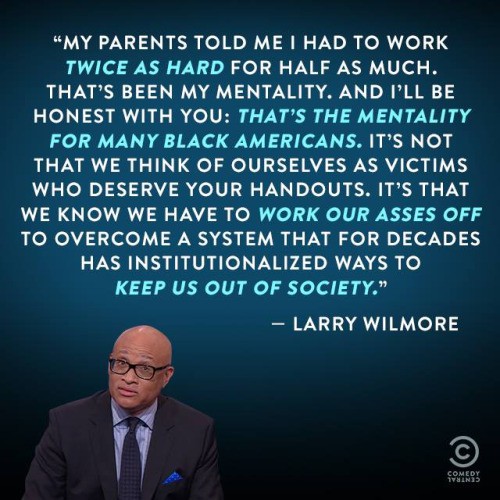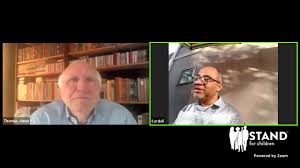It’s been obvious that some presidential candidates are tone deaf to the meaning of the Black Lives Matter movement, but recent comments by Jeb Bush that African Americans are motivated to support Democrats because of the lure of “free stuff” while he is offering them the pride of “earned success” simply defy common sense.
Just when you would think all candidates would have learned better, he became the latest one willing to tap into a rich vein of paternalism and condescension to insult a group of Americans who through government policy and structural racism were systematically denied the prime sources of wealth available to whites (not to mention resurrecting bigoted memes about lack of work ethic and a preference for dependency).
Upon hearing his comments, we immediately thought of Memphis, where half of those living in poverty are also working, suggesting to us that the real problem is not lack of motivation but lack of jobs that pay living wages, a problem exacerbated by federal cuts to programs addressing the roots of poverty, snipping the strands of the safety net, and investing in workforce development.
Contrary to opinions born from bias and privilege, for every African American living in poverty in Memphis, there are two who are not. They do not spend their days searching for “free stuff” but instead, they spend their days playing by the rules, working to raise their families, and doing everything possible to make their children’s futures successful.
Bush League
Mr. Bush’s lack of understanding about the issues and his historical ignorance contribute to one of the ironies of our time: so many white guys ready to give African Americans advice on their lives and to suggest that they suffer from victimization, ignoring the fact that the present circumstances for many African Americans specifically exist because they were victimized – and by their own government.
It’s these facts that make the assertion that African Americans need hope and aspirations especially spurious. If the American experience has been anything, it has been about African Americans persistent aspirations for full equality and hopes for greater opportunity.
It’s worth remembering that it was the federal government’s housing policies that produced the greatest explosion in wealth in American history for whites while African Americans were largely prevented from participating in the bulging middle class that resulted from home ownership. It is a convenient case of politically-induced amnesia, and it results in most American forgetting that it is government that is largely responsible for the segregation of our regions.
History Tells The Tale
Here are just a few inconvenient truths:
* New Deal public housing policies intentionally replicated the segregated nature of neighborhoods with African American housing being built in the ghetto while white housing was built in neighborhoods offering appreciation in values to their homes.
* HUD’s predecessor, the Federal Housing Administration, hired builders to construct America’s suburbs with the specific policy that no homes would be sold to African Americans while luring white families out of public housing to single family homes in the suburbs with federally insured mortgages.
* Some cities asked to build integrated public housing but federal agencies refused to allow it; nationally famous Levittown required no down payments and monthly mortgage payments were only $60, but the Federal Housing Administration prohibited the selling homes to black families and each deed included a covenant prohibiting such a resale in the future.
* Even into the 1980s, federally funded housing projects for white families had better facilities, maintenance, and amenities
* Both Democratic and Republican Administrations failed to enforce the Fair Housing Act, and as recently as eight years ago, the U.S. Supreme Court ruled that segregated neighborhoods were actually the result of choices made by African Americans.
* In the last 25 years of the 20th century, housing authorities stopped purposeful segregation, but it did nothing to reverse the impact of the policies that subsidized whites to leave cities for the suburbs and isolated African Americans into the urban core.
Persistent Segregation
Amazingly, it was only three months ago that HUD finally, after decades of ignoring the ineffectiveness of its policies, issued new rules requiring state and local governments to further fair housing goals by making serious efforts to replace “segregated living patterns with truly integrated and balanced living patterns.”
We could go on, but the point is that it was African Americans’ own government that was the primary reason for deepening inequality and segregation as a result of policies that created wealth for whites through homeownership.
Of course, the question is whether the damage has been done, and current progress is largely nibbling around the edges of the problems despite the high costs paid by cities like ours for the bitter fruits of economic segregation (as evidenced by the fact that more Americans live in high poverty areas than ever before). Our MSA is ranked #2 on the list of America’s most income-segregated large metros (barely behind the San Antonio MSA).
In the end, housing policies ultimately drove education policies. Even today, federally-funded housing is built predominately in poor areas with blight, problematic schools, few jobs, and higher crime rates, contributing to economic isolation that wounds regions like ours and produces barriers to opportunity.
In recent years, HUD’s policies shifted to providing vouchers so low-income families could rent on the private market, but according to research, the HUD formula has been flawed to the point that the vouchers can largely be used only in high poverty areas. However, here, while Memphis Housing Authority was converting the large-scale warehousing of poor families in old style public housing projects to mixed-use neighborhoods. And yet, while MHA was changing the lifestyles of about 1,300 people, HUD, without consultation with City of Memphis, used its site-based vouchers to recreate it with large-scale apartment complexes for poor families that frequently hit the radar of the city’s Blue Crush policing program.
It’s Expensive To Be Poor
That said, it was no accident that white wealth leapt ahead while African Americans were relegated to high-risk neighborhoods with few connections to the economic mainstream. It’s no wonder that African American family income in the U.S. is 60% of white family incomes, while white household wealth is 20 times more than African American household wealth. In our MSA, to achieve equity with the white population, African Americans average annual income needs to climb from $21,522 to $40,988, according to PolicyLink’s Equity Atlas.
But to explain the main point of this post about tone deaf politicians, the Pew Research Center earlier this year released a study concluding that most wealthy Americans believe “poor people today have it easy because they can get government benefits without doing anything in return.” In that context, it’s hardly a surprise that Jeb Bush shares the view of his peers.
Besides being ignorant of American history and how policies prevented the increase of African American wealth, many of these people also don’t understand how expensive it is to be poor (to quote James Baldwin). As we said, half of Memphians in poverty work, but as the Institute on Taxation and Economic Policy points out, the poor’s earnings are more heavily taxed than the earnings of wealthier Americans.
According to the study, the poorest 20% of Americans pay about 10.9% of their income in state and local taxes, compared to 9.4% in the middle fifth, and the top 1% averages 5.4%. A Tennessee Advisory Commission on Intergovernmental Relations report reached the same conclusion, stating that Memphians who earn $25,000 pay 10.8% of their income in taxes; 6.0% if they earn $50,000; 5.8% at $75,000; 4.9% if they earn $100,000, and 4.3% if they earn $150,000.
The Price of Poverty
Neurological research now proves that toxic environment that results from persistent high stress like families in poverty affects brain development in a way that people bathed in that kind of stress have a fight-or-flight trigger which plays out in school children who are so suspicious of other people and attuned to conflict that they cannot concentrate in the classroom.
Many poor families have no bank accounts, and as a result, they spend 2.5-3% to cash benefits checks or 4-5% for payroll checks, according to the Federal Reserve Bank of St. Louis, which added that there are also the costs of money orders to pay routine expenses, steep rates for loans, and little credit.
Then there is the high cost of transportation for the poor. Memphis is on the list of the cities where its citizens spend the greatest percentage of their incomes on transportation. Here, it averages 25%, but more than 250,000 people spend more than, according to the Center for Neighborhood Technology, which added that the percentage of places that are compact, close to jobs and services, and with a variety of transportation options is zero.
According to the C.I.A., in the Gini Index of 141 countries, the U.S. ranks 40th in income inequality. Meanwhile, of the 50 states, Tennessee ranks #40 on the Gini Index for lowest income inequality. Buried down in that avalanche of inequality is Memphis.
The Stuff Of Success
To put it simply, equal opportunity and a level playing field are crucial to economic equality and economic development, and as reality proves every day, extreme inequality and concentrated poverty are now structural problems and drags on cities like ours, depressing the economy, decreasing public revenues, increasing service costs, squandering human resources, and more.
That said, the greatest inequality is not in income and wealth but in the even larger gap in opportunity. Because of it, the greatest desire is not for free stuff but for the stuff of opportunity that allows every individual to shape his own success.
It’s a sad commentary on the personal values of some leaders that they still can’t grasp this simple fact.
***
Join us at the Smart City Memphis Facebook page for daily articles, reports, and commentaries that are relevant to Memphis.





